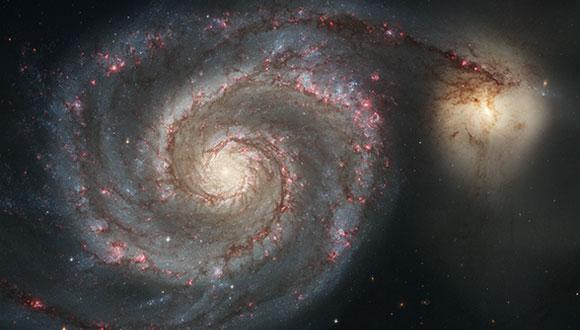Astronomy & Astrophysics Seminar: Don't you know? talking about a revolution... The new revolution of stellar dynamics in gas and its implication for binaries, GW sources and transients
Hagai Perets
Zoom: https://tau-ac-il.zoom.us/j/82693800844
Abstract:
Stars are thought to form following the collapse and fragmentation of giant molecular clouds. They are thought to further grow and evolve through accretion from, and interaction with the gaseous environment during their early evolution over up to a few Myrs when the gas disperses/accreted. Following the gas dispersal and depletion, the later long-term evolution of stars and multiple systems are thought to be dominated by their gas-free isolated stellar evolution in the field, and/or through dynamical interactions with other stellar companions and/or stars in dense environments. However, some environments can be replenished with gas leading to late epochs of stellar and binary evolution of stars embedded in gas, and dynamical encounters and interactions in gaseous environments. The accretion onto stars and the dynamics of stars in gas-embedded environments give rise to qualitatively different physical processes, which do not take place in gas-free environments. Consequently, stellar dynamics in gas fundamentally change the dynamics and stellar evolution of stellar systems, with far-reaching implications to the formation and evolution of binary/higher-multiplicity systems, catalyzing the formation of strongly interacting binary systems, stellar growth, stellar mergers, and the production of high-energy explosive transients and gravitational-wave sources. I will discuss various gas-rich environments, from star-forming regions, through AGN disks and the early stages of globular clusters. and the physical processes of stellar dynamics in gas occurring in these environments. These include gas-assisted formation of binary and higher multiplicity systems, gas induced binary and triple inspiral and instability at the macro and micro scales, the production of GW sources, and the implications of explosive transients occurring in gaseous environment.
Seminar Organizer: Prof. Dan Maoz


